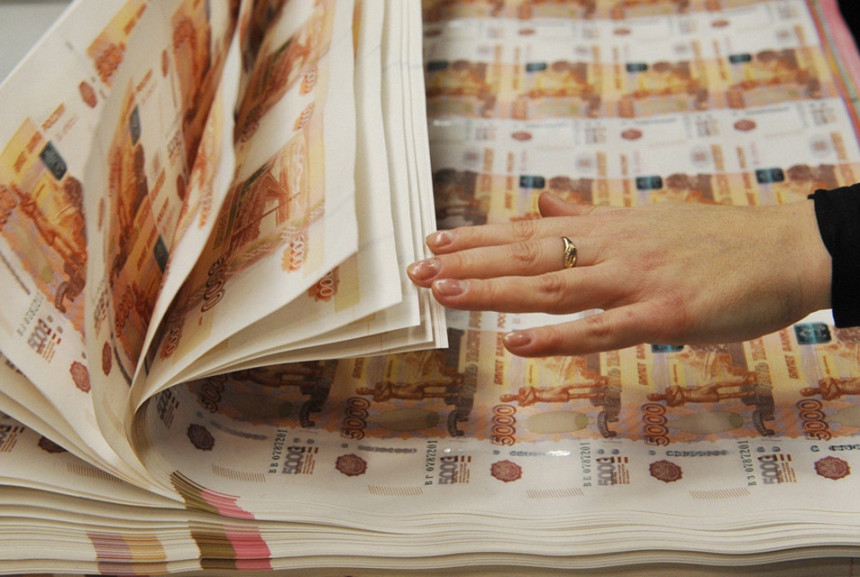Western payment restrictions combined with economic sanctions helped Russia stabilize its financial situation

Last week, several Russian commercial banks resumed the exchange of freely convertible currencies into Russian rubles.
Following Russia's invasion of Ukraine and Western sanctions - cutting off major Russian banks from access to the international interbank payment system (SWIFT) - the exchange rate of the Russian ruble fell catastrophically. At the end of 2021, one euro was worth 84 Russian rubles at the official Central Bank of Russia exchange rate. Shortly before the Russian invasion of Ukraine (February 22), one euro was worth 87.3 rubles. When sanctions began and major Russian banks were cut off from the international interbank payment system (SWIFT), the ruble plummeted. At the official exchange rate of the Central Bank of Russia, on March 11, 2022, the exchange rate was only 133.2 rubles per euro, and on March 15 - 127 rubles per euro. That’s how it was. But that is in the past. On June 3, 2022, the official exchange rate of the Central Bank of Russia was already 64.9 rubles per euro and 61.6 rubles per US dollar.
Unfortunately, the restrictions on payments imposed by Western countries combined with economic sanctions helped Russia stabilize its financial situation.
Official Russian statistics are no longer made public on a great many items, such as the volume of natural gas exports, natural gas export earnings, etc.
However, according to the BBC, Russia supplied the EU with 2.2 million barrels of crude oil and 1.2 million barrels of petroleum products per day in 2021. The BBC estimates that Russia's revenues from exports of oil, its products and also natural gas to Europe were €400 billion in 2021. This is the basis for the various anti-war slogans that the EU is transferring a billion dollars a day to Russia, which Putin can use to finance the war against Ukraine. The conclusion is therefore simple. By stopping oil and gas exports from Russia to Europe, Putin should be short of at least one billion dollars every day to finance the war against Ukraine.
Iron-clad logic.
However, many countries in the world - China, Turkey, India, etc. - have not signed up to all the sanctions imposed by the West. They continue and will continue to buy Russian oil and gas. They continue to import Russian hydrocarbons, but in order to avoid their companies being exposed to US sanctions, they do not use dollar payments, but switch to the Russian ruble or barter (clearing) methods. Since Russian aggression has led to a significant increase in the price of hydrocarbons on global markets, Russia can earn even more in euros and dollars by exporting amounts that can be measured in barrels and cubic meters, even in smaller volumes.
However, the main point. The fact that major Russian banks were cut off from access to the international interbank settlement system (SWIFT) effectively ended the export of Western consumer goods to Russia.
That is why, in the first three months of the Ukrainian war, Russia's daily spending on imports was $1.3 billion lower than in 2021. Although Russia is not gaining any share of the revenues from its former oil and gas exports to the West, as Russia's costs of importing Western luxury and consumer goods fell much faster, the Russian ruble strengthened to the point that Russian businesses are starting to call for the ruble to be devalued, while Russian commercial banks are considering negative interest rates on currency invoices and on currency deposits.
The moral is understandable. It is high time for those who determine Latvian and EU policy to realize that they are up against a very serious adversary. This means that primitive schemes and slogans oriented towards domestic politics - in Latvia's case, this year's elections - may actually even benefit the Russian military machine. It is time to start thinking about how to deal with the risks of Russian aggression in the long term.
*****
Be the first to read interesting news from Latvia and the world by joining our Telegram and Signal channels.